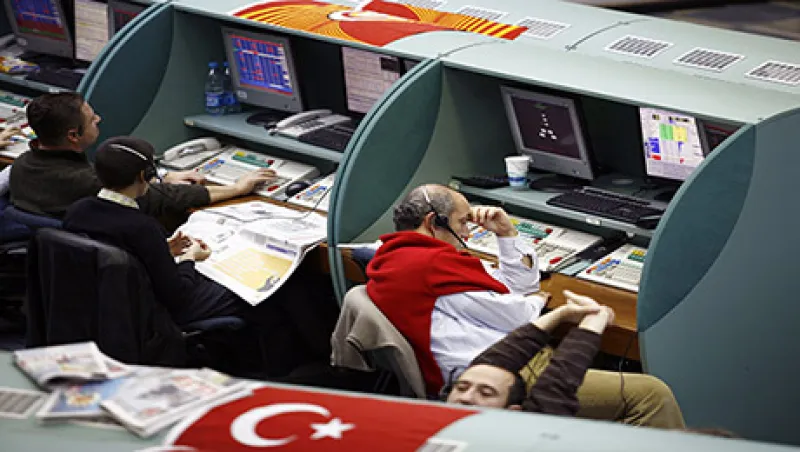
Traders work on the floor of the Istanbul Stock Exchange in Istanbul, Turkey, on Monday, Nov. 24, 2008. Turkey’s economy may grow 1.6 percent next year, less than half the government’s target, as demand for goods and services wanes, the Organization for Economic Co-operation and Development said. Photographer: Kerem Uzel/Bloomberg News
BLOOMBERG NEWS

